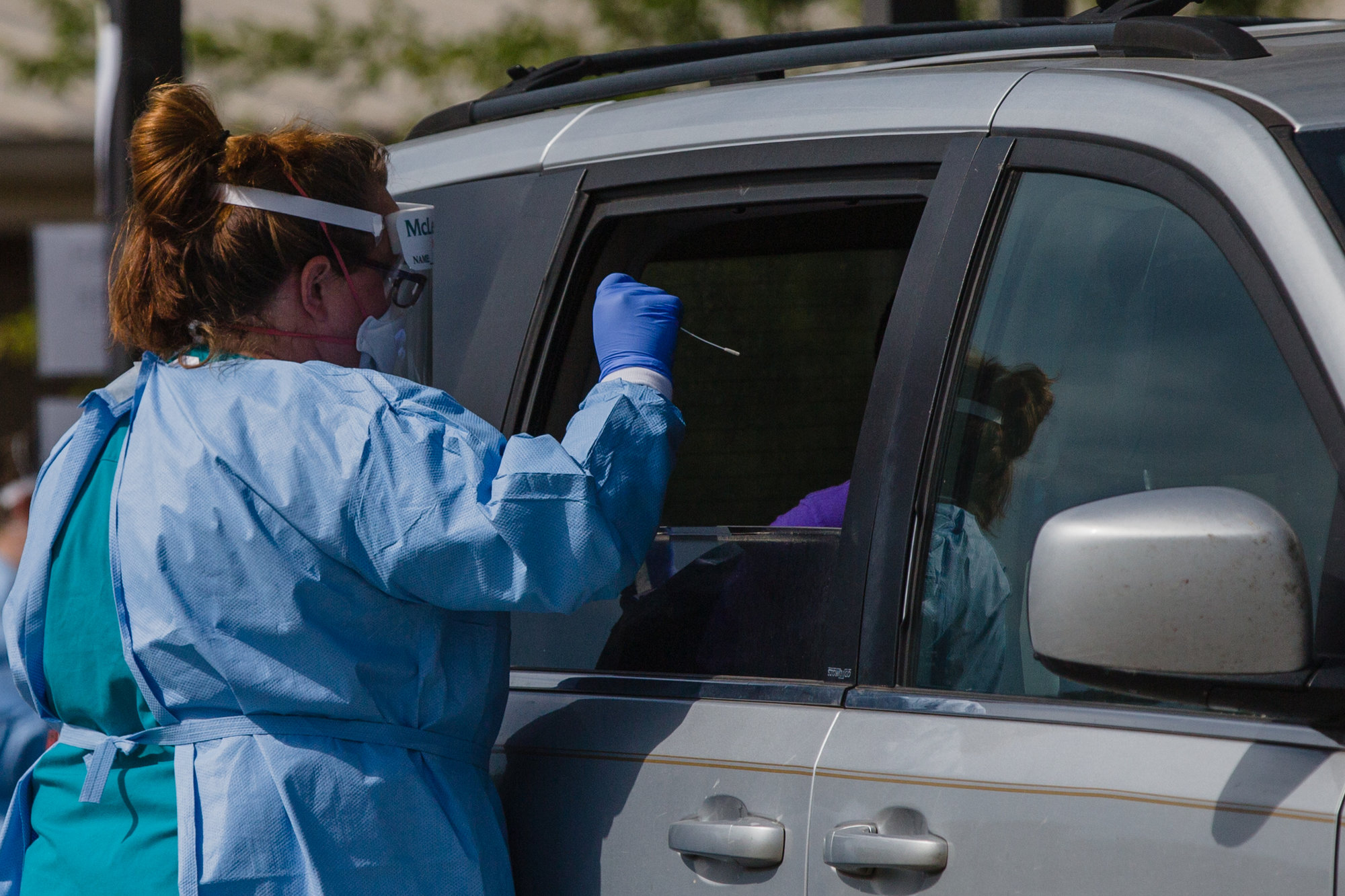S.C. Senate will spend $1.2B on COVID-19 relief
All our coronavirus coverage is free to the public. It’s the right thing to do as a public service to our community. If you find this article helpful or informative and want to support our continued coverage, please subscribe or support us with a tax-deductible donation.
To find all our coronavirus coverage, including helpful local resources and website links, click here.
---
COLUMBIA - The South Carolina Senate approved a plan Tuesday to spend $1.2 billion in federal relief money to combat COVID-19.
Senators voted 43-0 on a bill that nearly mirrors Gov. Henry McMaster's suggestions on how to spend the money by reimbursing a trust fund to pay unemployment benefits. It calls for paying for an extra week of school for many students and creating a state stockpile of protective equipment for a future pandemic.
The Senate met as COVID-19 cases in South Carolina continued to surge. Officials reported 890 new cases Tuesday. It was the first time in seven days that South Carolina didn't have more than 900 cases per day. Before a week ago, the state had never reported that many cases.
The number of people in the hospital from COVID-19 hit a new record Tuesday at 824 patients, jumping by about 200 since Thursday, and the rate of positive tests went above 17% for the first time, according to data from the state Department of Health and Environmental Control.
Health officials reported 14 additional deaths, bringing the death toll for the virus to 673 since the outbreak began more than two months ago.
Hospitalizations from COVID-19 are surging across the Prisma Health health care system, which serves the Midlands and Upstate and includes Tuomey in Sumter. Dr. Steve Shelton, an ER physician and incident commander for Prisma Health Midlands, told The Sumter Item Tuesday that while the system does not share exact capacity numbers with the public, a perspective for evidence of a surge is that there were 113 patients hospitalized in Prisma Health Midlands' four facilities as of June 18. Their numbers are updated each Thursday.
The previous record, he said, was on April 3 with 90 beds being occupied.
DHEC data as of June 22 show Sumter County's hospital capacity is at 77.4%, while Clarendon County's is at 65.9%. Lee County is one of eight counties in the state without a hospital.
Shelton said Prisma is not at "crisis level" yet but that the system and state are experiencing a rolling wave of cases and hospitalizations.
While the spike in new cases has been seen in recent weeks among younger South Carolinians than before, those being hospitalized continue to be people who are older or have underlying health conditions or compromised immune systems.
Prisma considers Tuomey part of the Midlands' 1,000-bed hospital system, Shelton said, and there are plans that have been in place to react to surges in medical needs related to the virus. Patients can be moved anywhere in the system to accommodate capacity and needs, and facilities are able to open or reconfigure units to increase bed capacity.
"We need everyone to play a part in stopping the spread," Shelton said, a repeated plea public health officials have been issuing.
Dr. Catherine Rabon, chief medical officer and a hospitalist at McLeod Health Clarendon, echoed Shelton's thoughts on the need to wear a mask and stay at least 6 feet apart from each other in public.
She said the Clarendon hospital - which can also increase capacity based on connectivity to their system and converting additional units - is also seeing an increase in hospitalizations and new cases but that it's "nothing like it was before."
Clarendon fell out of rank as a hot spot for rate of infection and the virus becoming deadly after initial spikes that had lowered.
Those recommendations include social distancing, wearing a mask in public, washing your hands regularly, cleaning high-touch surfaces and staying home if you show symptoms.
Back at the Statehouse, the Senate's brief June special session had one goal - approve the federal aid money. The typically long-winded chamber debated less than 90 minutes before sending the spending plan to the House, which meets Wednesday.
The bulk of the money, $500 million, goes to refilling the state's unemployment trust fund. It was rapidly being drained by hundreds of thousands of lost jobs from the COVID-19 shutdown.
The plan sets aside $225 million for five additional school days to help students who missed about 10 weeks of in-class instruction last year. Officials asked that the money be concentrated on elementary schools, though many details like when those extra days would be added to school calendars have not yet been determined and may be left to local districts.
The bill sets aside more than $200 million to help colleges and local governments with COVID-19 expenses such as protective equipment and overtime.
It also gives emergency officials $17 million to create a state stockpile of protective equipment that health officials promise will be rotated and replenished unlike the unusable equipment sent by the federal government to some states when the pandemic started.
The Senate agreed to set aside about $600 million for unforeseen expenses. The money must be spent by the end of the year.
Later Wednesday, Gov. Henry McMaster planned to announce a new COVID-19 restaurant safety program.
More Articles to Read

